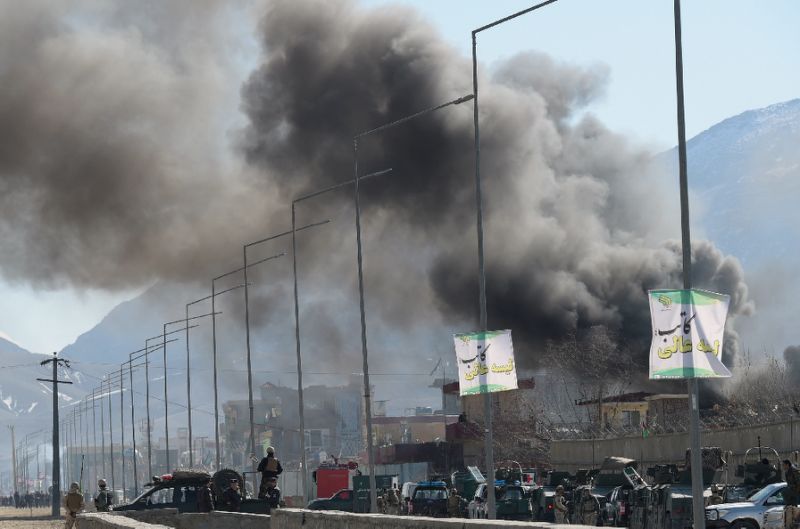Twin suicide attacks, claimed by the Taliban, rocked the Afghan capital of Kabul on Wednesday, targeting two security compounds.
At least three people were killed and 38 wounded in the carnage, which underscores rising insecurity in Afghanistan from the resurgent Taliban, whose insurgents are intensifying attacks even before the start of their annual spring offensive.
A suicide car bomber struck an Afghan police precinct in western Kabul and a gunbattle ensued, the interior ministry said, in a continuing attack which sent clouds of acrid smoke billowing into the sky.
Five minutes later a suicide bomber blew himself up at the gates of an Afghan intelligence agency branch in eastern Kabul as another attacker was gunned down while trying to enter the compound, the ministry added.
After the car bomber hit the police station “another attacker who entered the building has taken position inside. Security forces are still engaged in fighting,” a ministry official told AFP.
“Two terrorists entered a building. One blew himself up and the second was shot by Afghan security forces,” said Abdul Nasir Ziaee, commander of 111th corps based in the east of the city.
The Taliban claimed both assaults, with spokesman Zabihullah Mujahid calling them “martyrdom attacks” in a Twitter message. The Taliban, who sometimes exaggerate the impact of their operations, said the attacks had caused heavy casualties.
The health ministry said the wounded, some of them in critical condition, had been rushed to hospitals.
“More casualties are expected as the ambulances are on their way,” ministry spokesman Waheed Majroh told AFP.
Afghan police and troops are battling a resurgent Taliban as the insurgents escalate nationwide attacks, even in winter months when the fighting usually wanes.
Repeated bids to launch peace negotiations have failed, and an intense new fighting season is expected to begin in the spring.
Afghan forces, beset by record casualties, desertions and non-existent “ghost soldiers” on the payrolls, have been struggling to rein in the Taliban since US-led NATO troops ended their combat mission in December 2014.
According to US estimates, Afghan government forces now control less than 60 percent of the country although they hold all main provincial centers.
